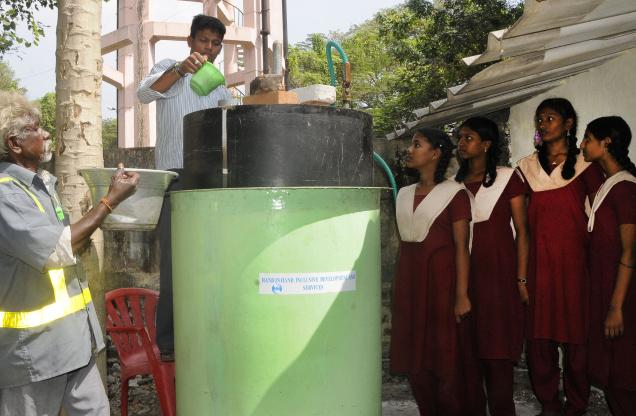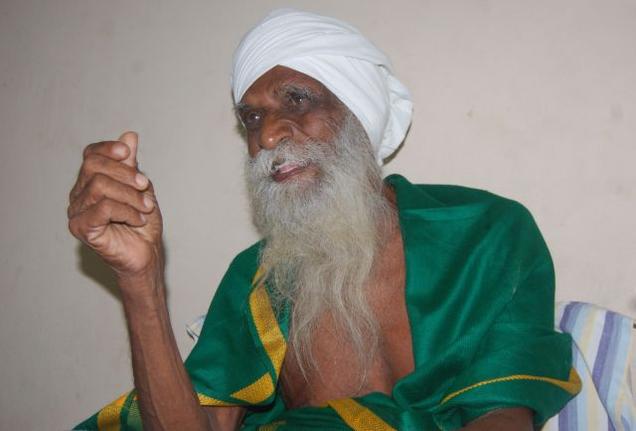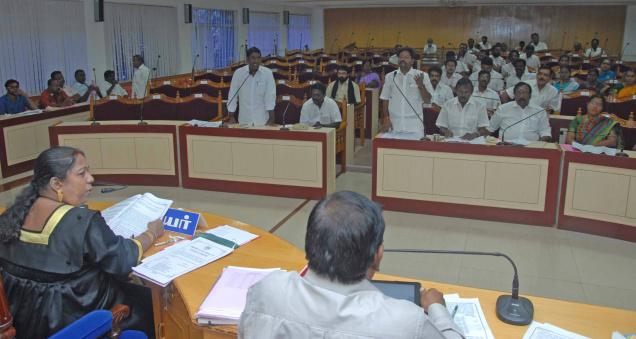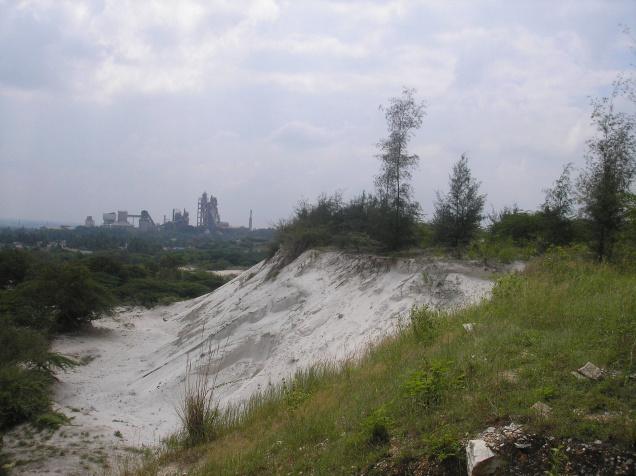
Once the plant reaches full capacity, there will be enough gas to run the stove for 150 minutes, nonstop, every day
Food waste generated from restaurants has helped to light the stove at the noon-meal kitchen of a government school in St. Thomas Mount.
More than 150 children have lunch at the school every day.
Clean energy
A biogas plant was set up at Cantonment High School in St. Thomas Mount last week. Through the simple process of fermentation of degradable waste, the plant produces methane gas from food waste.
Through a pipeline, the gas reaches a conventional stove in the noon-meal kitchen of the school.
The plant is yet to reach its full capacity as trials are still on. However, the gas generated now is enough to boil eggs that are served to the students along with the lunch. Once the plant reaches full capacity, there will be enough gas to run the stove for 150 minutes, nonstop, every day.
Plant costs Rs. 25,000
The plant was inaugurated by S. Prabhakaran, chief executive officer of St. Thomas Mount-cum-Pallavaram Cantonment Board, in the presence of Army officers and elected representatives.
Hand-in-Hand, an NGO associated with the Board’s solid waste management project from 2009, has installed the plant, which costs Rs. 25,000. “This is a very small plant but can be scaled up in the future. It has resulted in significant savings in LPG usage,” said Mr. Prabhakaran.
Peter Durairaj, health superintendent, said the plant had now been filled with about one kilogram of food waste sourced from restaurants every day. The food waste is mashed before being poured into the plant.
The resultant sludge from the plant — high-quality manure — can be used in gardening.
source: http://www.thehindu.com / The Hindu / Home> News> Cities> Chennai / by K.Manikandan / Chennai – January 12th, 2014



